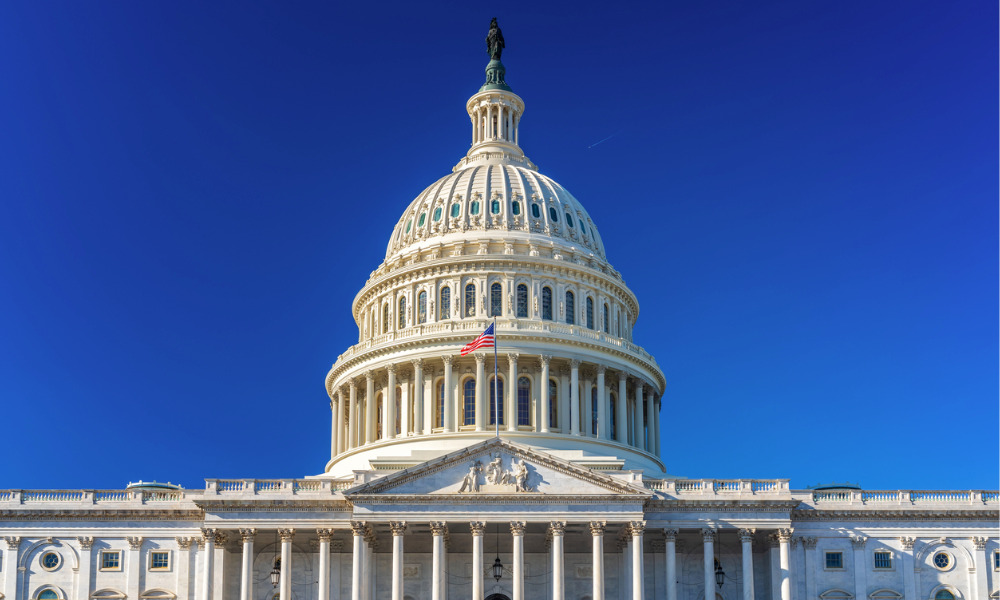Investors boosted by sense of 'event relief' that election is over and a political gridlock that benefits markets beckons

Dim the lights, bring out the scented candles and roll out the yoga mat … the final leg of the US election means the anti-anxiety trade is on, according to Forstrong’s Tyler Mordy.
With legal challenges, and bitter press conferences and other risks still ahead, the firm’s CEO and CIO believes that a sense of “event relief” is beginning and will extend into 2021.
Part of that is because market sentiment was already prepared for the likelihood of a contested election, while Mordy also told WP that the widely feared “nightmare scenario” of a Biden win and divided Congress will actually benefit the market and add to the sense of calm about the future.
He broke his anti-anxiety trade thinking down to three elements, which should give investors cause for optimism.
Firstly, there’s the aforementioned event relief, which is being compounded as Biden’s path to victory widens. The 77-year-old will offer a steadier hand when it comes to foreign policy; Mordy expects less erratic engagement with allies and a more constructive approach to relations with China.
The end of electioneering will also remove the “political incentive to dwell exclusively on the risks of Covid instead of applying the rational cost-benefit analysis that public policy requires”.
The second element is the prospect of a divided government. He explained: “Historically, gridlock has been good for markets. In today’s case, the US’s domestic policy would remain status quo, without the dreaded reversal of Trump's tax cuts along with no increase in the regulatory environment.”
The final point, and where Mordy believes Forstrong’s view diverges from many other money managers, is that this gridlock does not mean government will pull back from embracing fiscal largesse.
He said: “The market is still under-estimating bipartisan appetite for deficit spending. Regardless of who wins, there's going to be enormous enthusiasm for fiscal support in favour of economic growth and the market is not priced for that.”
Investors can get lost in the haze in placing too much importance on the exact size of the stimulus and on the impact of a single event. “Episodes like elections cause investors to lose sight of the larger macro trends”, Mordy said.
Under either party, stimulus packages will all be in the trillions, and the CEO remains confident that there are many prospects for growth coming out of the pandemic recovery to encourage investors. Certain sectors – like solar stocks – may have already heavily priced in a Biden victory but, overall, he said broader markets, as they have been all year, remain “behind the curve in terms of the outlook for economic growth”.
While Mordy recognizes – like many onlookers – that the current political events look like a “slow-moving train wreck”, he said America is no banana republic and that its institutions will ensure a winner is ratified some time over the next six weeks. That doesn’t mean the country is not ailing and fractured but it does mean that many of the world’s macro trends will not be de-railed.
Mordy, therefore, warned investors not to fall into the “binary trap” by betting the farm on one outcome. Focusing on one type of risk is speculative at best, he said.
“What’s more, such speculation hinges upon achieving two near-perfect tactical portfolio actions. One is getting out at the right time; the second is to get back into the markets at the right time. The first decision is difficult at best. The second step is often overlooked. There are plenty of analysts who have predicted doom - most far too early - only to fail to re-invest at the appropriate time. Both errors can be catastrophic.
“A far better approach is to accept that a wide possible set of scenarios may unfold. From there, investors can insulate against a number of outcomes by diversifying portfolios across global investment classes and also prepare for a change in the macro outlook.”
Essentially, Trump’s Twitter feed or Biden’s age, for example, matter far less to the markets than policy. The size of the stimulus will be huge, as mentioned, regardless of who is in power, while monetary policy will not change; the Fed, in its new policy framework, will remain extremely dovish – even allowing inflation to exceed its official long-running target of 2%.
Forstrong has long been Emerging Asia bulls and Mordy admitted the jury is out over what effect a Biden win will have. However, while he’ll undoubtedly bring a more conciliatory approach, what is likely to remain unchanged is that corporate America will continue to contradict Washington’s hawkish rhetoric.
He said: “China’s trade surplus with the US has grown almost 25% since the start of the Trump presidency. U.S. investment in China is strong. Perhaps the biggest lesson is that it is incredibly difficult to untangle the sprawling and complex web of supply and demand chains between China and America. These will not be unravelled any time soon. Markets once again trump politics.”
View your portfolio from a wider position than just this election, factor in a global economic recovery and let the anxiety leave you. Maybe it’s time to book that massage after all.



